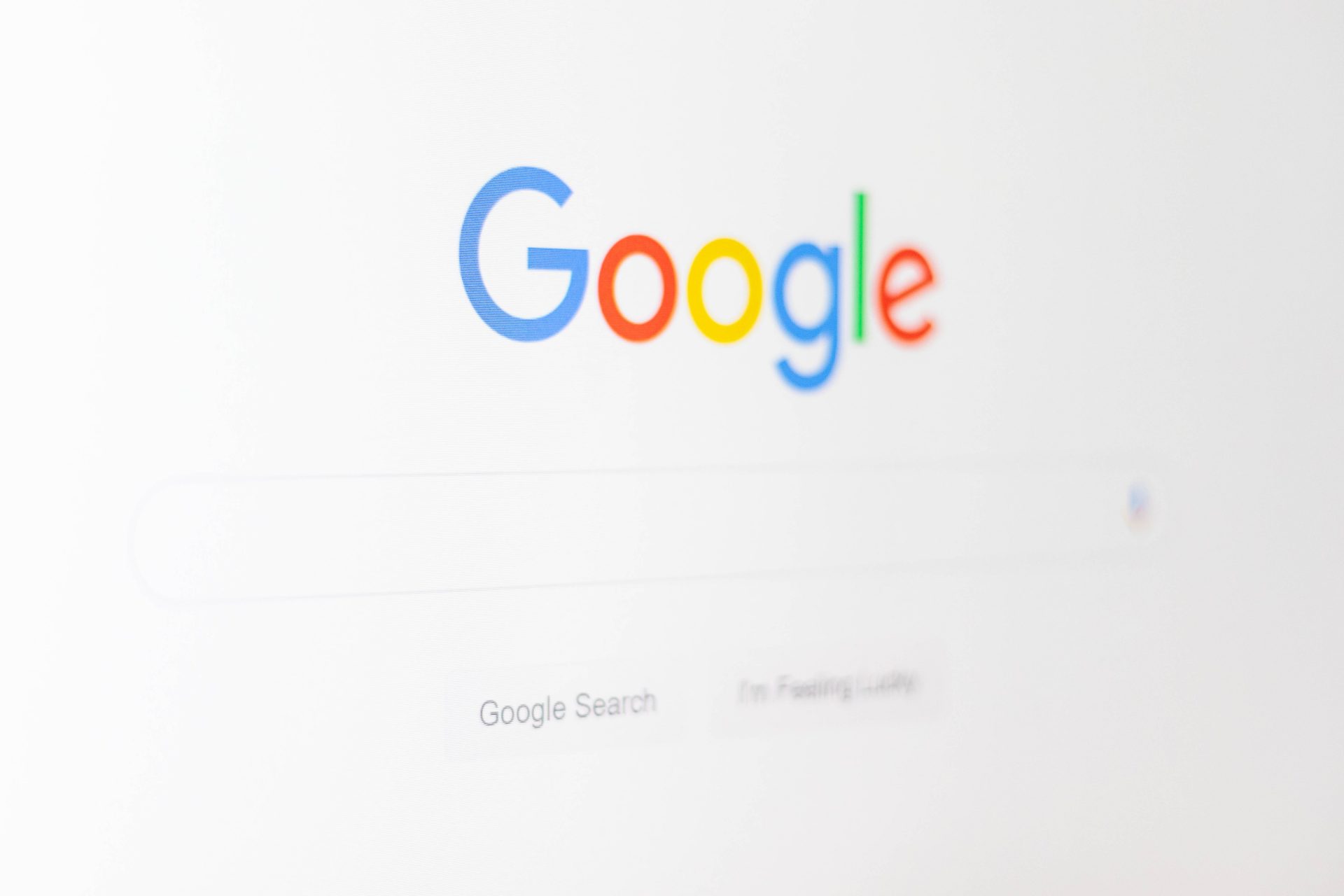On Friday the 17th of September Google made an announcement about their new web page title generation system.
The tech giant received a significant amount of feedback after their initial announcement in August, so they have implemented minor changes and provided more clarification about how the system works.
Google’s new system will now generate web titles using HTML title elements (sometimes called title tags – “H1”) and will use algorithms when necessary.
Because users can visually see HTML <H1> title elements on webpages, Google concluded it generally contains the visually obvious title or content that’s made stylistically prominent on purpose. Consequently, the text inside the HTML title tag is likely to describe what the page is about. According to Google, this information will be used to automatically generate web page title tags approximately 87% of the time.
Here’s what the H1 tag looks like on the Springboard Digital homepage. You can look at your headers by right-clicking on the page and selecting ‘Inspect,’ or by downloading the SEO META in 1 CLICK Chrome extension. Our SEO experts recommend including keywords related to the webpage or your products or services in the H1 because it’s ranked higher than H2, H3 and so on.
We specialise in affordable digital marketing, hence our H1:

However, there are situations where Google’s systems don’t believe the title element describes the page as well as it could. Some instances include:
- Very long title tags;
- Black hat SEO tactics, such as keyword stuffing;
- When no title element exists; or
- The same one is used for every page on the website and isn’t descriptive.
To combat this, they choose the best portion of the tag or add your site name to make the title more readable and accessible. The other 13% of the time, they’ll continue to use algorithms to generate alternative titles.
Prior to the update in August, Google used algorithms to generate titles that were relevant to search queries, which was thought to improve click-through rate. Although this benefitted website owners, tests have proven the updated system produces titles that describe pages more accurately, which improves user experience. If you have more high-quality traffic on your page, it’s more likely they will click through onto other pages or consider your services or products.
Sounds great, right? Unfortunately, it isn’t always so accurate. SEO specialists, marketers and businesses across the world have noticed repetitive errors which have proven to significantly affect traffic. Lily Ray, a NYC based SEO specialist, has coined it the ‘Titlepocalypse.”
Check these common mistakes out:
The death of important capital letters
One of the weirdest things about the title tag update in Google is I am seeing far more titles with no capital letters, even for the first letter, and it looks so odd. pic.twitter.com/iBaCWdAfzu
— Jennifer Slegg (@jenstar) August 21, 2021
Inaccurate rewrites
It's unnoticeable to most, outside those interested in search engines, but in that example:
— dan barker (@danbarker) August 25, 2021
Google have taken what the page is about ('Flu'), and rewritten it to what they *think* it should be ('Flu Vaccinations').
That seems small (other than perhaps re pro/anti-vax) but… pic.twitter.com/aN8CoTll2o
The result… declining traffic.
1st significant casualty of the Google titlepocalypse:
— Lily Ray 😏 (@lilyraynyc) August 25, 2021
This is a subfolder on an ecomm site where <title> tags switched out for <h1>, making them look a lot worse on Google.
CTR declined by .6% and clicks declined by over 60k in the past week!
(avg position stayed the same) pic.twitter.com/6hl9YdqhlC
The goal is to write meta titles that are so accurate Google won’t rewrite them. Some businesses don’t invest in search engine optimisation because it doesn’t bring in the big bucks straight away, but it is still important to consider the long-term benefits. Although metadata doesn’t directly affect your website’s ranking in search results, it significantly improves organic search discovery and has the ability to enhance your existing SMM and PPC campaigns. After all, imagine clicking on a promising Google ad only to find unrelated content or a poorly optimised website!
Your header tags should also be accurate and succinct, just in case Google decides to use them (and for great user experience!). They’re one of the ways Google bots determine the content of your website, which does affect your ranking. It can be tricky to balance the aesthetic of your H1 tag on a web page with SEO purposes, but it’s in your best interest to do so. Google can’t tell what your page is about if the H1 is simply ‘home.’
For example, Mariart Design Studio’s H1 is “We are a full-service creative agency that is practiced in the art of connection.” It explicitly states what the webpage is about for Google bots while maintaining visual aesthetic for users.

Unfortunately, optimising metadata and title tags is time consuming and tedious. The introduction of Google’s new title tag system means it’s more important than ever to protect your website traffic, so investing in high-quality SEO is absolutely worth it.






